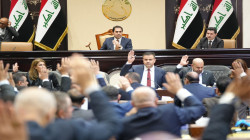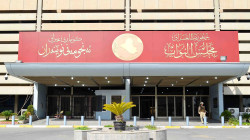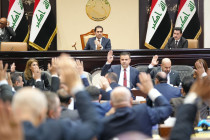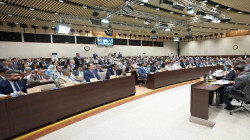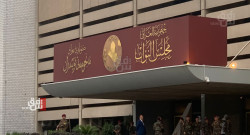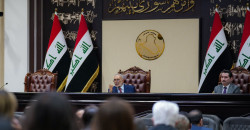Iraq's controversial laws on hold: Political blocs play the long game for 2025 elections
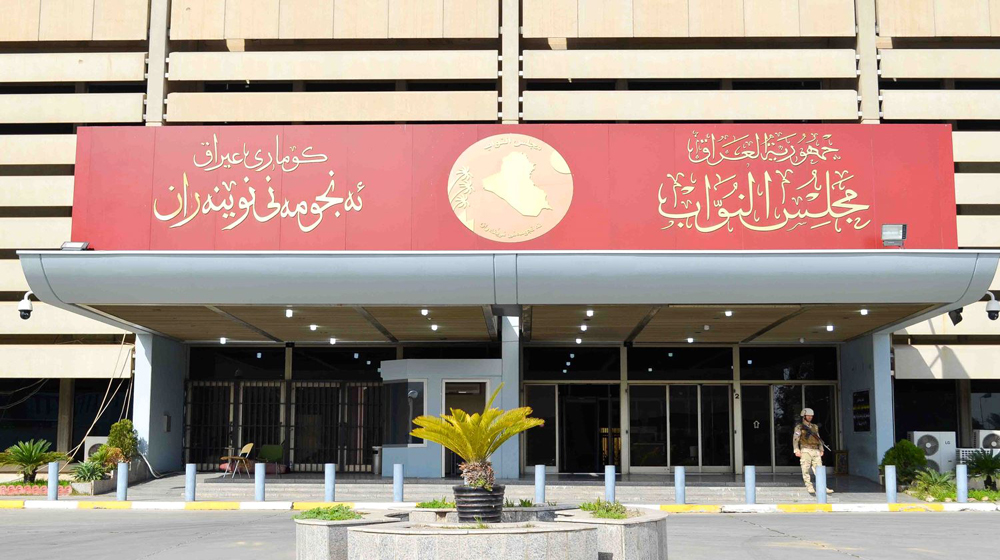
Shafaq News/ Iraq’s Parliament has hit pause on three contentious laws, leaving the nation in suspense as political forces eye the October 2025 elections for potential breakthroughs. Observers suggest that political blocs may use these laws as a “tool” for electoral maneuvering, making last-minute deals to enhance their appeal ahead of the elections.
Parliament failed to convene its 20th session on Sunday to vote on key proposals, including amendments to the Personal Status Law No. 188 of 1959 backed by the Shiite Coordination Framework (CF,) the Property Restitution Law sought by Kurdish parties, and the Second Amendment to the 2016 General Amnesty Law supported by Sunni MPs.
Despite a 30-day extension on November 7 to address pending legislation, Parliament was unable to reach consensus on these divisive issues, deferring them to the next legislative term.
Repeated Political Promises
Contentious laws that have long stirred debate in Iraq's parliament face an uncertain future, as repeated attempts to pass them have faltered, MP Muhammad Qutaiba Al-Bayati told Shafaq News Agency.
“The controversial laws have been presented in multiple sessions but failed to achieve political consensus," Al-Bayati explained. "As a result, the last session of the legislative term was adjourned without setting a new date to revisit them."
Al-Bayati indicated that the initial sessions of the upcoming legislative term are unlikely to address these laws. “Their inclusion on the agendas has started to provoke dissatisfaction among MPs, often leading to session cancellations,” he said.
The MP warned that the failure to pass these laws could have political ramifications. “These laws have been depleted as potential campaign tools for the upcoming elections. They must either be resolved in this parliamentary term or lose their relevance for future sessions," he said. He also cautioned that repeated delays risk alienating voters, especially those advocating for these measures, due to “repeated political promises of legislation that remain unaddressed to this day.”
Basket System: A Deviation from Legislative Process
The Iraqi Parliament entered its legislative recess after extending the legislative term for 30 days based on Article 58 of the Iraqi Constitution. Therefore, that period has ended, and it is now mandatory to enter the recess from December 9, 2024, to January 9, 2025.
Political researcher Saif Al-Saadi explained to Shafaq News Agency, "These laws have been postponed until January 9, the start of the new legislative term. However, during that period, the Parliament is expected to face significant pressure due to the presence of numerous critical laws." Among the most pressing issues are the Election Law, which has stirred debates on the proposed systems, including multiple districts, a single district, and the Sainte-Laguë method. Additionally, the law of the Independent High Electoral Commission remains contentious.
Al-Saadi noted that the General Amnesty Law has been linked to the Personal Status Law, while the Property Restitution Law has also been tied to these two laws. “This is puzzling, as the first law does not exclusively concern the Sunni community but applies to all segments of Iraqi society. It is therefore unreasonable to bundle it with other contentious laws. Continuing the practice of the 'Basket System' represents a deviation from the legislative process," he expressed.
"The basket system for passing three contentious laws has repeatedly failed in past sessions."
Moreover, the political researcher emphasized the urgency of passing the Amnesty Law, stating, "The General Amnesty Law needs to be enacted due to the many individuals harmed by issues such as secret informants, forced confessions, precautionary detention, or those who have served one-third of their sentence. The law would allow affected individuals to pay 10,000 Iraqi dinars ($7.63) per day of their remaining sentence for release, provided there is no private complainant, leaving only the public interest."
Al-Saadi predicted that, despite the challenges, "the Amnesty Law will likely be enacted after the legislative recess, as the three laws have already completed their legislative procedures, leaving only the voting on their justifications and legal articles."
Election Campaigning
In an interview with Shafaq News Agency, political analyst Ahmed Al-Yasiri stated that "the contentious laws were essentially an electoral campaign tool designed to reinforce sectarian quotas and political rivalry." He explained that the Amnesty Law, for example, was proposed by Sunni forces during the election period to appeal to their supporters. "It forms part of the electoral polarization these Sunni forces aim to establish and defend," Al-Yasiri added, drawing a parallel to similar laws proposed by the CF.
Al-Yasiri further highlighted that political forces had failed to pass election-related laws and, in an attempt to resolve the deadlock, elected Mahmoud Al-Mashhadani as Speaker of Parliament. However, he noted that “Al-Mashhadani's lack of a clear mechanism and his status as a supplementary figure, rather than an original part of the electoral cycle, hindered his success.”
He warned that "the upcoming period will cast its shadow over events in Iraq and render Parliament less effective." He confirmed that political blocs must take the initiative to foster a positive polarization that would reflect on society and help address the challenges ahead, warning that Iraq could face changes similar to those experienced in Syria.
Similarly, political analyst Jassem Al-Gharabi pointed out that "the political blocs insisted on including these laws in the political agreement to secure votes for Mohammed Shia Al-Sudani's government at that time." Speaking to our agency, Al-Gharabi speculated that "the contentious laws might be postponed to the end of Parliament's term, serving as an electoral tool for political blocs." He anticipated that “these blocs will likely reach an agreement shortly before the elections and pass the laws to capitalize on them for electoral gains.”
Overview of the Controversial Laws
The draft Property Restitution Law, which addresses properties affected by decisions from the dissolved Revolutionary Command Council, has become a focal point in Iraq’s political landscape. Kurdish MPs and officials argue that the law is aimed at returning properties to their original Kurdish and Turkmen owners, confiscated under eight decisions made by the Council between 1975 and 1979. These decisions were intended to enforce demographic changes in disputed areas.
The proposed amendments to the Iraqi Personal Status Law No. 188 of 1959 have ignited heated debates within Parliament and civil society organizations. The proposed changes cover a wide range of issues, including marriage, divorce, inheritance, and child custody.
Meanwhile, Sunni parliamentary and political forces continue to press for the passage of the General Amnesty Law, a proposal that has met opposition from Shiite factions due to concerns over the potential release of detainees linked to terrorism charges. Since the formation of Al-Sudani’s government, this law’s fate remains uncertain. Despite an agreement to enact it, observers point to a lack of political will, particularly within the CF, which is believed to be delaying the law’s progress and backtracking on prior commitments made to Sunni forces to secure their support for the new government.
Sunni blocs conditioned the passage of this law during negotiations to form the State Administration Coalition, which included the CF, and Kurdish and Sunni blocs, leading to Al-Sudani's government. Sunni MPs maintain that the government’s program includes enacting the Amnesty Law, canceling security checks in their provinces, and addressing the suspension or abolition of certain entities that have contributed to significant tensions.
